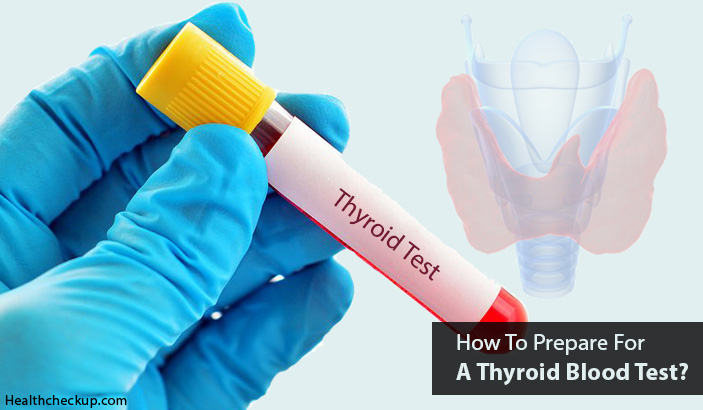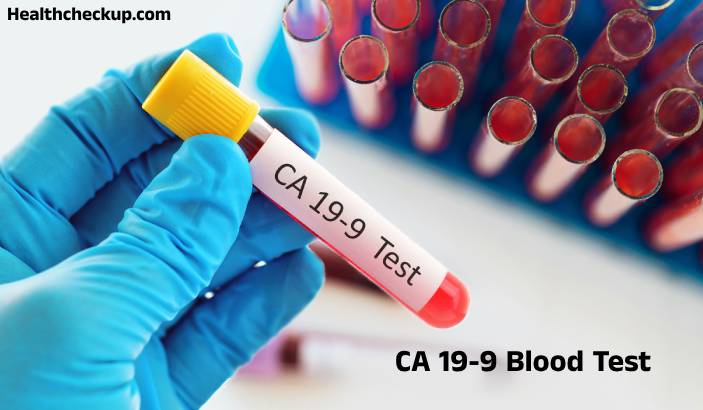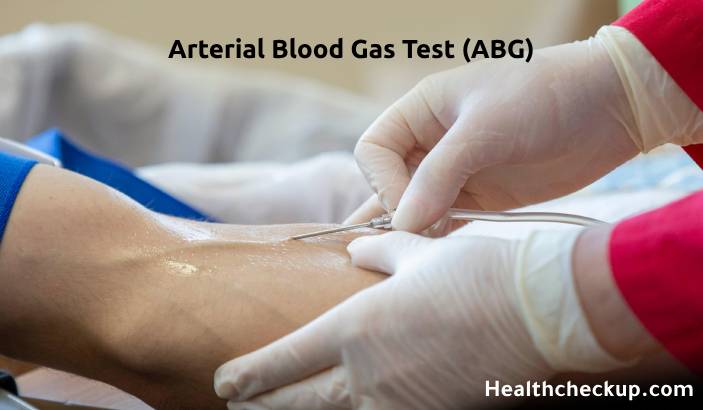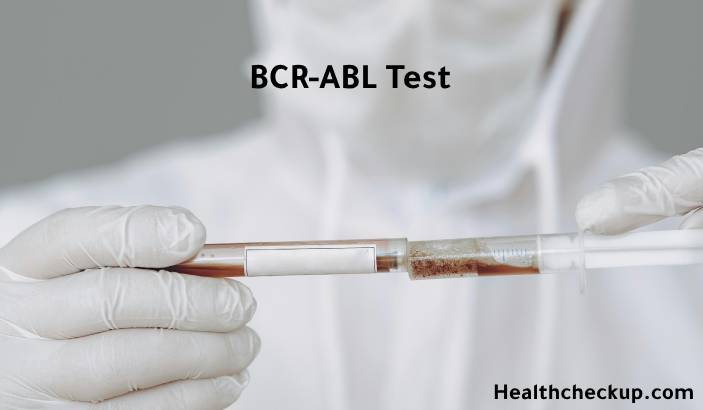Have you been advised a thyroid blood test? This article will help you understand why you need the test and how to prepare for a thyroid blood test.
Thyroid disorders are becoming increasingly prevalent and have become a common illness worldwide. According to recent statistics, an estimate of 42 million (more than 30% population) people in India suffers from thyroid disorders. It comes under the umbrella of the term “lifestyle disorders”.
In India, such high number of thyroid cases can be because of lack of proper nutrition and unavailability of therapeutic sources. Lack of awareness and education and inadequate screening for thyroid disorders are other major contributing factors.
Thyroid Gland is A Butterfly-shaped Gland Located in The Neck Which Synthesizes and Releases Following The Hormones
- T3 – Tri Iodothyronine
- T4 – Thyroxine
- Calcitonin
Thyroid Stimulating Hormone (TSH) is secreted by the pituitary gland which stimulates the thyroid gland to produce T3 and T4. In blood, 80% of T3 and 70% of T4 hormones are bound to a transport protein, thyroxine binding globulin (TBG).
About 0.05% T4 and 0.2% T3 are found in “free” or unbound form in the plasma. The thyroid gland is one of the most important endocrine glands of the body. It influences a lot of body functions by secreting the thyroid hormones.
It is Responsible for Regulating and Maintaining The Following Bodily Functions
- Basal Metabolic Rate
- Normal Respiration
- Blood Pressure and Normal Cardiac Output
- Heat Production in The Body
- Renal Function and Glomerular Filtration Rate
- Ovulation in Females and Spermatogenesis in Males
- Growth and development of the skeletal, muscular and nervous system in children
- Growth and development of skin, hair follicles and nails
- Carbohydrates, fats and protein metabolism
- Calcium Metabolism
Learn More About Natural Ways To Enhance T3 Levels
How to Prepare for A Thyroid Blood Test?
Thyroid blood test is done in the following conditions
- To evaluate the functioning of the thyroid gland.
- To assess the adequacy of therapy in hypothyroidism and hyperthyroidism
- To monitor treatment of thyroid cancer
A Thyroid Blood Test is also Done In High Risk Patients Such as
- Strong family history of thyroid disorders
- Having an auto-immune disease
- Persons having some genetic conditions like Down’s syndrome
- Past history of neck irradiation
- Patients on drugs therapy like lithium or amiodarone
- Women over the age of 35 years
- Pregnant women during the first trimester and postpartum or after delivery
Preparing for A Thyroid Blood Test will Include The Following
Some researches, however, claim that T3, T4 and TSH levels did not show any significant difference in fasting and non-fasting conditions in the same patient. For this reason, fasting for 8-12 hours is advised. You will be asked to report to the laboratory in the morning.
If you go for a thyroid blood test routinely or if you have been on thyroid treatment, it is usually advisable to go for the test at the same time and in the same manner, that is, fasting or non-fasting.
Drawing blood takes less than 5 minutes. You can resume your regular work immediately.
There are no specific risks for a thyroid blood test. You may notice slight bruising at the site of the punctured vein. This goes away in a day or so without doing much to it. You can even apply ice packs if the bruise hurts too much. Contact your doctor immediately if the punctured vein site becomes red and swollen.
Factors Affect Thyroid Blood Test Results
Drugs
Certain Drugs and Medications can Influence Thyroid Blood Test Results, This need to be Discussed with your Doctor. Drugs Affecting Blood Test Results are
- Lithium
- Amiodarone
- Estrogen, Oral Contraceptive Pills
- Iodine Supplements
- Immuno Modulating Drugs
- Certain Non Steroidal Anti Inflammatory Drugs (NSAIDs)
- Heparin
- Anti Epileptic Drugs
- Diuretics (Furosemide)
- Glucocorticoids
- Biotin Supplements
- Cough Syrups – Since sodium and potassium inhibit release of hormones
Medical Conditions
Similar to drugs certain medical conditions can also influence thyroid blood test results
- Pregnancy – Due to physiological increase in metabolism, thyroid blood test results vary.
- Sick Euthyroid Syndrome – Severe acute or chronic illnesses, starvation, malnutrition, severe trauma, sepsis or liver cirrhosis, in absence of thyroid illness can present with abnormal thyroid blood test reports.
Other Factors Which can Affect your Thyroid Blood Test Results are
- Timing of thyroid medication
- Fasting or non-fasting before giving the blood sample
- Foods influencing thyroid reports like coffee and alcohol
- Time of the day when the test is done
- Interpretation of results by lab technician or doctor
Learn More about Reasons For Fasting Before Blood Tests
Thyroid Blood Test Procedure
- Your doctor will first note down your entire case history to understand if you need a thyroid blood test.
- You will be asked to withhold any drugs or medications for 6-8 hours before the drawing blood for a thyroid test as they may interfere with test results.
- You will be asked to roll up your sleeve and the nurse will tie a tourniquet around your arm so that your veins swell and become prominent.
- The nurse or laboratory technician will puncture a vein to draw blood.
- Blood is stored in a plain bulb and sent to the laboratory for investigation.
- Testing for only thyroid stimulating hormone (TSH) does not require fasting and can be done at any time of the day. TSH levels observed in the fasting state are about 26% higher than in the non-fasting state.
Thyroid Blood Test Normal Range
| Hormone | Normal range |
| T3 | 80 – 220 ng/dL |
| T4 | 5.4 – 11.5 mcg/dL |
| Free T3 | 3.0 – 4.0 pg/mL |
| Free T4 | 0.7 – 1.8 ng/dL |
| TSH | 0.5 – 4.5 mIU/L |
| TPO antibodies | Less than 35 IU/mL |
| Anti-thyroglobulin | Less than 20 IU/mL |
Values above or below the reference range are considered abnormal. Hyperthyroidism and Hypothyroidism are the two commonest thyroid disorders.
If your tests results are abnormal, your clinician may want to evaluate further. He may advice you an ultrasound, CT scan, thyroid scan or a radioactive iodine uptake test. You may also need to undergo a few other blood tests to assess the causes of thyroid disorders.
Dr. Himanshi is a Homoeopathic consultant and currently working as a lecturer in Post-graduate faculty of Homeopathy, Parul University, Vadodara. Completed BHMS and MD in Homeopathy in January 2018 and also has a clinical experience of about 6 years. Personal interests include reading, spending time with family and traveling.








